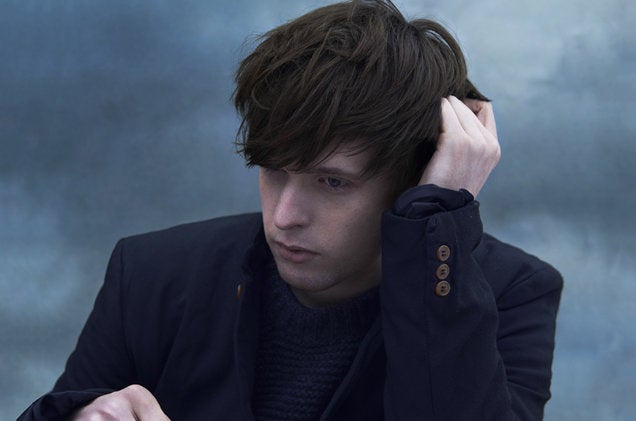James Blake, The Colour In Anything - album review: 'Subtle and sensitive'
Download this: Radio Silence; Love Me In Whatever Way; Choose Me; Noise Above Our Head

“In my heart, there’s a radio silence going on,” sings James Blake on the opening track of The Colour In Anything. It’s an odd claim for such an emotionally exposed artist, who throughout the album prods away tentatively at concerns and issues that clearly cause him pain.
For all that, you get a sense of what he means in “Radio Silence”, which features his sparse piano part against a pulsing wash of pink-noise synthesiser, the entire track haunted by ghostly vocals lurking in the background.
As before, there’s a keen appreciation of space in his music, and especially of the emotional power of that space: within its cavernous lacunae one can sense disparate, divided hearts desperately struggling to touch each other, to make the connections that are so much more directly conveyed in mainstream pop.
Sometimes, those connections twang apart to leave Blake apparently bereft, as when, clinging to a failing romance in “Love Me In Whatever Way”, he finally accepts defeat, his keening wail of ecstatic abjection soaring above the piano and glitch/noise soundscape. It’s the most overt vocal flourish of the album, all the more effective for its isolation. Elsewhere, he croons and coos gently over his characteristic samplescapes and slow beats, his tremulous musings sometimes looped into repeating figures, most notably in “Points”, where his claim, “It’s sad that you’re no longer, no longer her” is gradually occluded by waves of gossamer ambient textures, like being suffocated in feathers.
For such lightly-rendered music, there’s a deceptive strength about Blake’s approach that’s mirrored in his willingness to shoulder emotional weight. Being unburdened seems anathema to him: “You don’t weigh me down like you think you do,” he confides in “Choose Me”, which opens like a chorale in tumult, but goes on to develop the album’s most propulsive beat – as if the added emotion provides ballast to stabilise the track’s momentum.
It’s not a perfect album – like so many, at 17 tracks it’s way too long, and there’s too little variation in tempo and mood – but it’s yet another confirmation of what can be achieved when subtlety and sensitivity are the driving forces.
Join our commenting forum
Join thought-provoking conversations, follow other Independent readers and see their replies
Comments
Bookmark popover
Removed from bookmarks